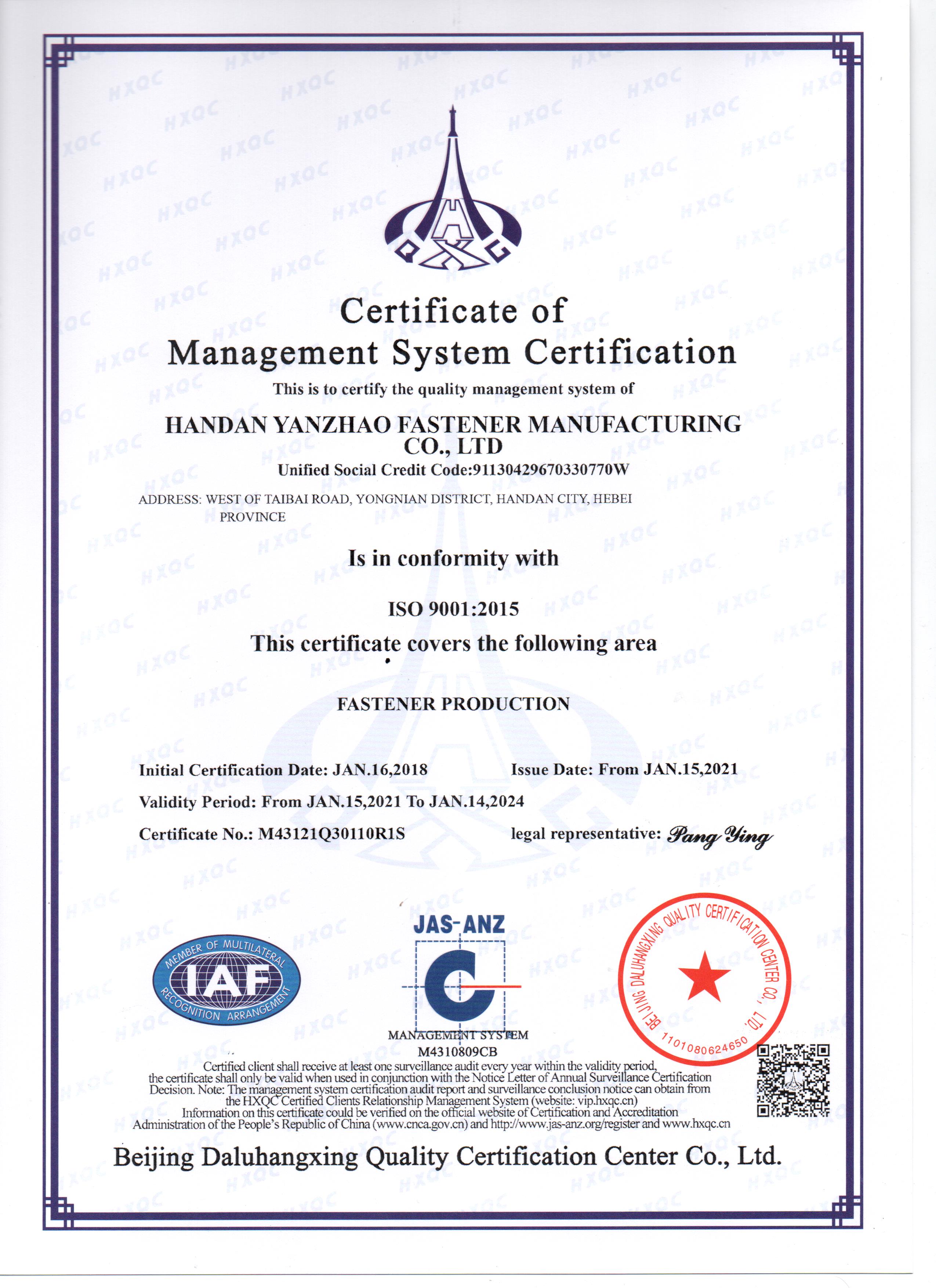custom frp screws
Dec . 12, 2024 00:51 Back to list
custom frp screws
Custom FRP Screws Tailored Solutions for Composite Applications
In today’s advanced manufacturing landscape, the utilization of Fiber Reinforced Polymer (FRP) materials has seen remarkable growth across various industries, including construction, automotive, and aerospace. As these industries continue to shift towards more durable and lightweight materials, the demand for specialized fastening solutions, such as custom FRP screws, becomes increasingly important. This article delves into the significance, benefits, and applications of custom FRP screws, elucidating their role in enhancing product performance and reliability.
Understanding FRP and Its Applications
Fiber Reinforced Polymer is a composite material made by combining polymer resins with reinforcing fibers (such as glass, carbon, or aramid). This combination results in enhanced mechanical properties, including increased strength, stiffness, and resistance to corrosion and environmental degradation. These advantages make FRP an ideal choice for applications in various sectors, including
- Construction FRP materials are utilized for reinforcing structures, bridges, and coastal applications due to their lightweight nature and resistance to environmental factors. - Automotive The automotive industry leverages FRP for manufacturing lightweight body panels, reducing vehicle weight and improving fuel efficiency. - Aerospace High-strength and lightweight FRP components are crucial in aerospace applications, providing improved performance while reducing overall weight.
The Importance of Custom FRP Screws
Standard screws may not always meet the specific requirements of various FRP applications. Custom FRP screws are essential as they are engineered to fit particular designs, load requirements, and environmental conditions. These screws are tailored to account for factors such as
- Material Compatibility Custom FRP screws can be made from specialized materials that provide optimal bonding with FRP, reducing the risk of failure due to chemical reactions or incompatibility. - Size and Thread Design Depending on the application, the size and thread profile of the screws can be customized to ensure secure fastening without damaging the FRP material. - Coating and Finishing Protective coatings can be applied to enhance the screws' corrosion resistance and longevity, especially in harsh environments where exposure to moisture and chemicals is a concern.
Benefits of Using Custom FRP Screws
custom frp screws

1. Enhanced Performance By using screws specifically designed for FRP, manufacturers can ensure that the joints remain secure and dependable under various load conditions. Customization also allows for optimal thread design, which can improve grip and reduce the risk of stripping.
2. Cost-Effectiveness Although custom FRP screws may represent a higher initial investment compared to standard options, they offer long-term savings through reduced maintenance and replacement costs. Their tailored design can decrease the likelihood of failures, thereby enhancing overall system reliability.
3. Increased Design Flexibility The ability to customize screws means that design engineers can focus on innovation without being constrained by standard fastener specifications. This flexibility allows for more creative and efficient designs that can significantly enhance product performance.
4. Reduced Installation Time Custom frp screws can be designed for specific assembly processes, which can facilitate quicker installation compared to generic screws that may require adjustments or additional tools.
Applications of Custom FRP Screws
Custom FRP screws can be found in diverse applications, such as
- Marine Industry Used in boat construction and repair, where resistance to water and salt is vital. - Wind Energy Supporting the assembly of turbine blades, where high strength-to-weight ratios are crucial. - Transportation Employed in rail and bus manufacturing, providing lightweight solutions for structural integrity.
Conclusion
In conclusion, custom FRP screws represent a significant advancement in fastening solutions for the rapidly evolving realm of composite materials. Their ability to enhance performance, reduce costs, and encourage design innovation makes them indispensable in various industries. As more manufacturers adopt FRP materials, the demand for custom fastening solutions will only continue to grow, establishing custom FRP screws as a critical component in the future of engineering and design.
Latest news
-
Premium Phosphated Drywall Screws Supplier | Durable, Rust-Resistant
NewsAug.27,2025
-
Reliable Wire Bolts Suppliers | Quality Zinc Plated Fasteners
NewsAug.26,2025
-
Wire Bolts Suppliers: Durable & Reliable Fasteners for Every Project
NewsAug.25,2025
-
Premium Cabinet Bolts Supplier | Wholesale & Custom Solutions
NewsAug.24,2025
-
Reliable Axle Nuts Supplier | Quality & Precision Fasteners
NewsAug.23,2025
-
Durable Bolts for Lawn Mower Handle - Top Supplier & Manufacturer
NewsAug.22,2025
